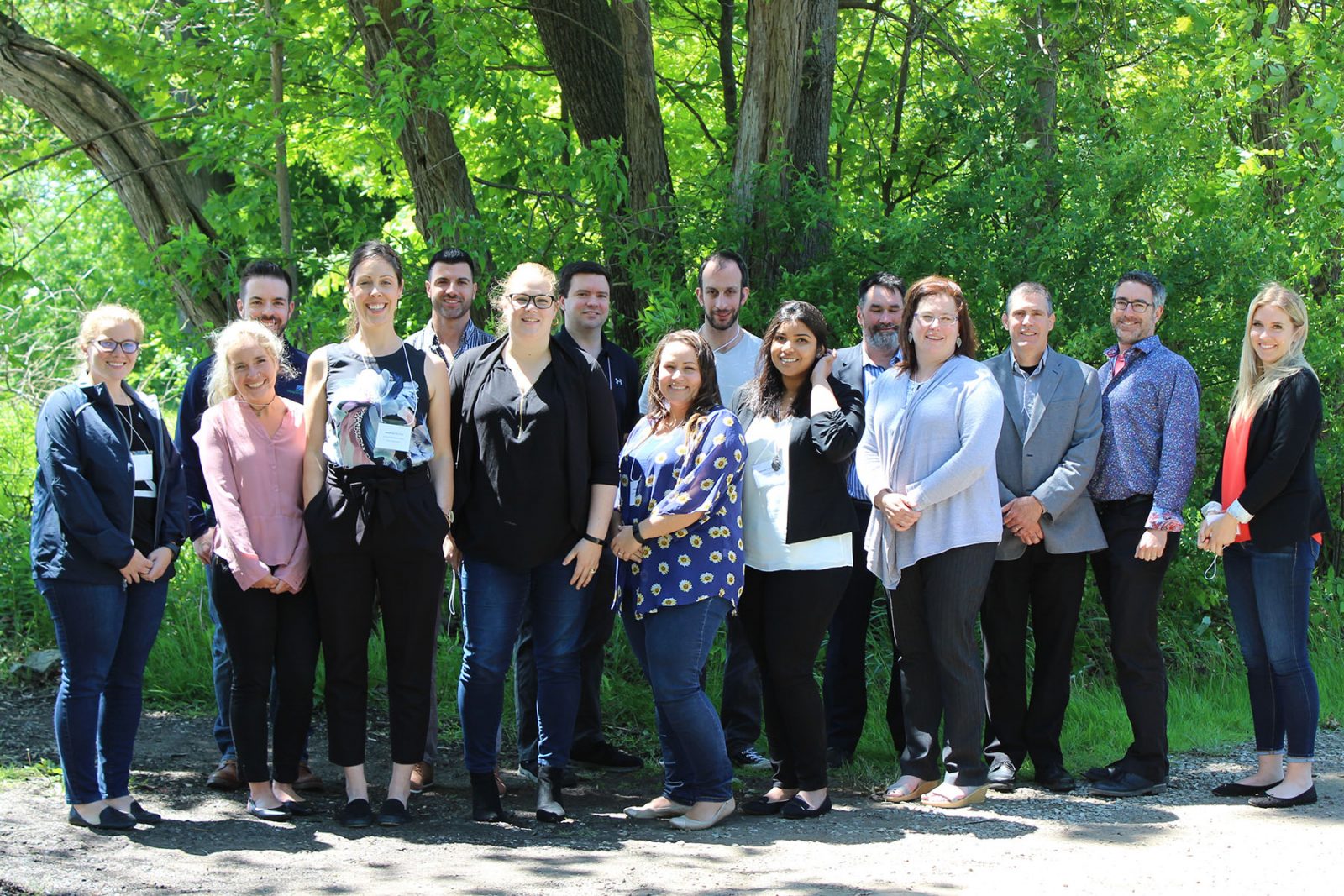In June, members of Brock University’s Environmental Sustainability Research Centre partnered with seven Niagara municipalities to address how climate change is affecting the region. This partnership, formally known as Niagara Adapts, was officially launched to the public on November 27th, 2019.
The launch event featured a screening of the film Resilience, followed by a panel discussion with climate coordinators from each of the seven municipalities involved in Niagara Adapts. The conversation continued during a reception event where members of the community were invited to speak with ESRC members, Resilience filmmaker John Anderson, and other members of the Niagara Adapts team.
























































